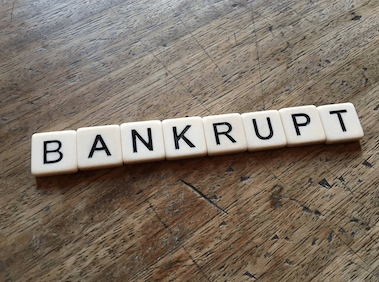In times of financial hardship, individuals may turn to payday loans as a quick solution to meet immediate needs. However, the cycle of high interest payday loans can lead some borrowers to seek relief through bankruptcy. With this in mind, Dollar Hand explores the complex relationship between payday loans and Chapter 7 bankruptcy, examining the legal implications, processes and considerations for individuals facing financial distress.
What Is Chapter 7 Bankruptcy?
Chapter 7 bankruptcy, often referred to as “liquidation” or “straight bankruptcy,” is a legal process designed to provide individuals with a fresh financial start by liquidating non-exempt assets to pay off debts. This chapter allows eligible debtors to discharge certain unsecured debts, relieving them of the obligation to repay.

What Are The Different Types Of Debts In Chapter 7 Bankruptcy?
Not all debts can be discharged in Chapter 7 bankruptcy. The distinction between secured and unsecured debts plays a crucial role:
| Secured Debts: | Secured debts are tied to collateral, such as a mortgage or car loan. In Chapter 7, the debtor may have the option to surrender the collateral or reaffirm the debt by continuing payments to keep the property. |
| Unsecured Debts: | Unsecured debts are not tied to specific assets. Examples include medical bills, credit card debt and personal loans. Chapter 7 allows for the discharge of certain unsecured debts, providing relief to the debtor. |
How Are Payday Loans Treated In Chapter 7?
While payday loans are generally unsecured debts, their treatment in Chapter 7 bankruptcy is subject to scrutiny due to the unique nature of these loans:
Payday Loan Structure
Payday loans are typically short term loans with high interest rates, often due on the borrower’s next payday. The structure and terms of these loans can raise questions about their dischargeability in bankruptcy.
Presumption of Fraud
Some payday lenders may argue that the borrower had no intention of repaying the loan at the time it was taken, creating a presumption of fraud. This can complicate the discharge process for payday loans.
What Are The Challenges In Discharging Payday Loans?
Discharging payday loans in Chapter 7 bankruptcy is not always straightforward, and several challenges may arise:
Fraudulent Intent Allegations
Payday lenders may allege fraudulent intent on the part of the borrower, asserting that they never intended to repay the loan. Proving or disproving such allegations can be a complex legal process.
Timing of Loan Repayment
If a payday loan was taken shortly before filing for bankruptcy, the lender may argue that the timing indicates an intent to defraud creditors. The court may scrutinize the timing of the loan in relation to the bankruptcy filing.
Small Claims Exemption
Some states have small claims exemptions that affect the dischargeability of payday loans. In these cases, payday lenders may pursue legal actions to recover the debt even after bankruptcy.
Are Payday Loans Considered As Part Of The Means Test?
The means test is a crucial aspect of Chapter 7 bankruptcy, determining the debtor’s eligibility based on income and expenses. Payday loan payments may be considered as part of the means test, affecting the overall assessment of the debtor’s financial situation.

Why Is It Important To Consult With A Bankruptcy Attorney?
Given the complexities and potential challenges associated with discharging payday loans in Chapter 7 bankruptcy, seeking legal advice is crucial. A knowledgeable bankruptcy attorney can provide guidance on:
Fraudulent Intent Claims
Attorneys can help debtors navigate allegations of fraudulent intent by presenting evidence and arguments that demonstrate a genuine need for financial relief.
Timing Considerations
Legal professionals can assess the timing of payday loans in relation to the bankruptcy filing, addressing any concerns raised by the court or creditors.
Means Test Implications
Bankruptcy attorneys can evaluate the impact of payday loan payments on the means test, helping debtors understand their eligibility and potential outcomes.
What Are Alternatives To Bankruptcy For Payday Loans?
Before considering Chapter 7 bankruptcy, individuals burdened by payday loans should explore alternative options:
Debt Settlement
Negotiating with payday lenders to settle the debt for a reduced amount may be an option. This can be pursued independently or with the assistance of a debt settlement company.
Debt Consolidation
Combining multiple debts, including payday loans, into a single, more manageable payment plan through debt consolidation may be a viable alternative.
Financial Counseling
Seeking the guidance of a certified credit counselor can provide individuals with strategies on how to get out of debt, creating budgets and exploring alternatives to bankruptcy.
The Bottom Line
While Chapter 7 bankruptcy offers a pathway to financial relief for many individuals, the discharge of payday loans comes with its own set of challenges. Navigating the legal complexities and potential hurdles requires careful consideration and often the expertise of a bankruptcy attorney.
Individuals grappling with payday loan debt should approach the situation with transparency, seeking professional advice to explore the best course of action. Whether through bankruptcy or alternative debt relief options, the goal is to achieve financial stability and a fresh start while understanding the legal implications of each choice. Ultimately, responsible financial management and informed decision-making are key to building a more secure financial future.
Was this article helpful?
Justine is a full-time writer with lots of expertise and a wealth of experience in the financial world. In particular, she specializes in household income and consumer finance across the United States. Follow her articles for useful advice and top tips, guides on how to save money and lots more.
